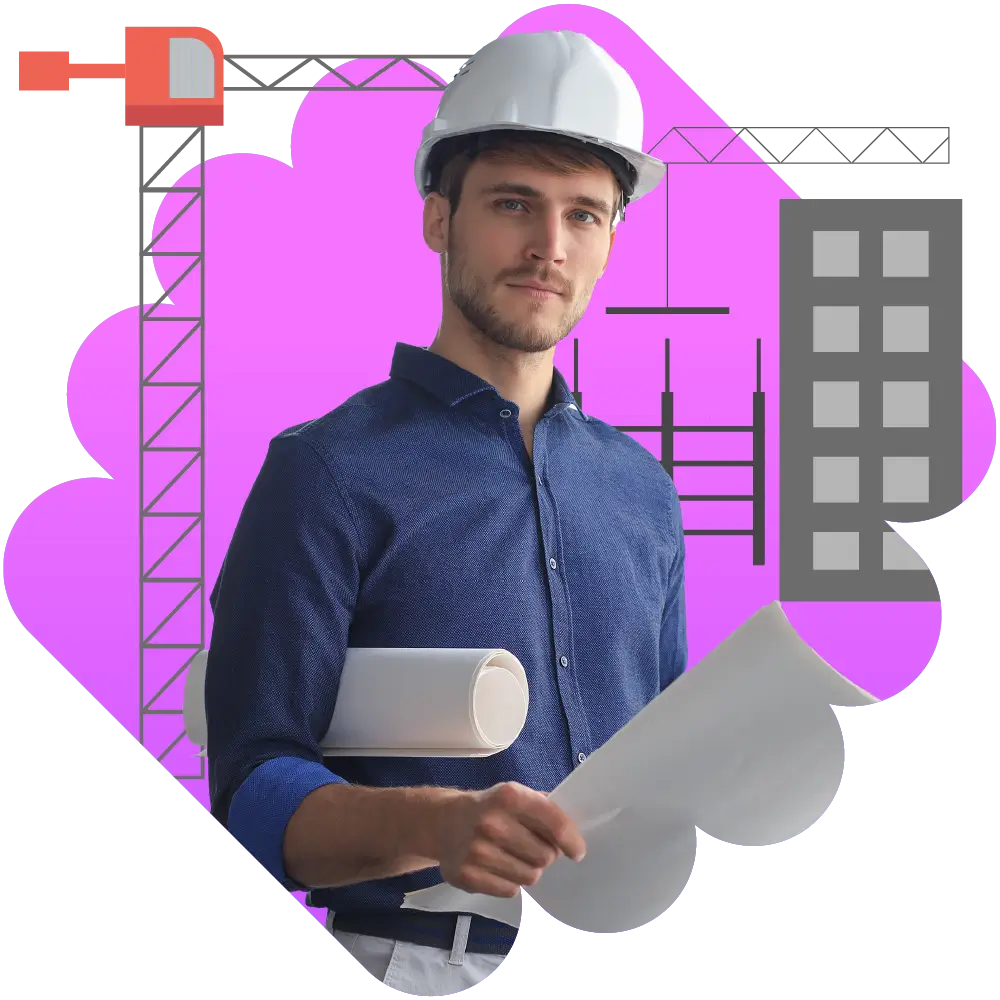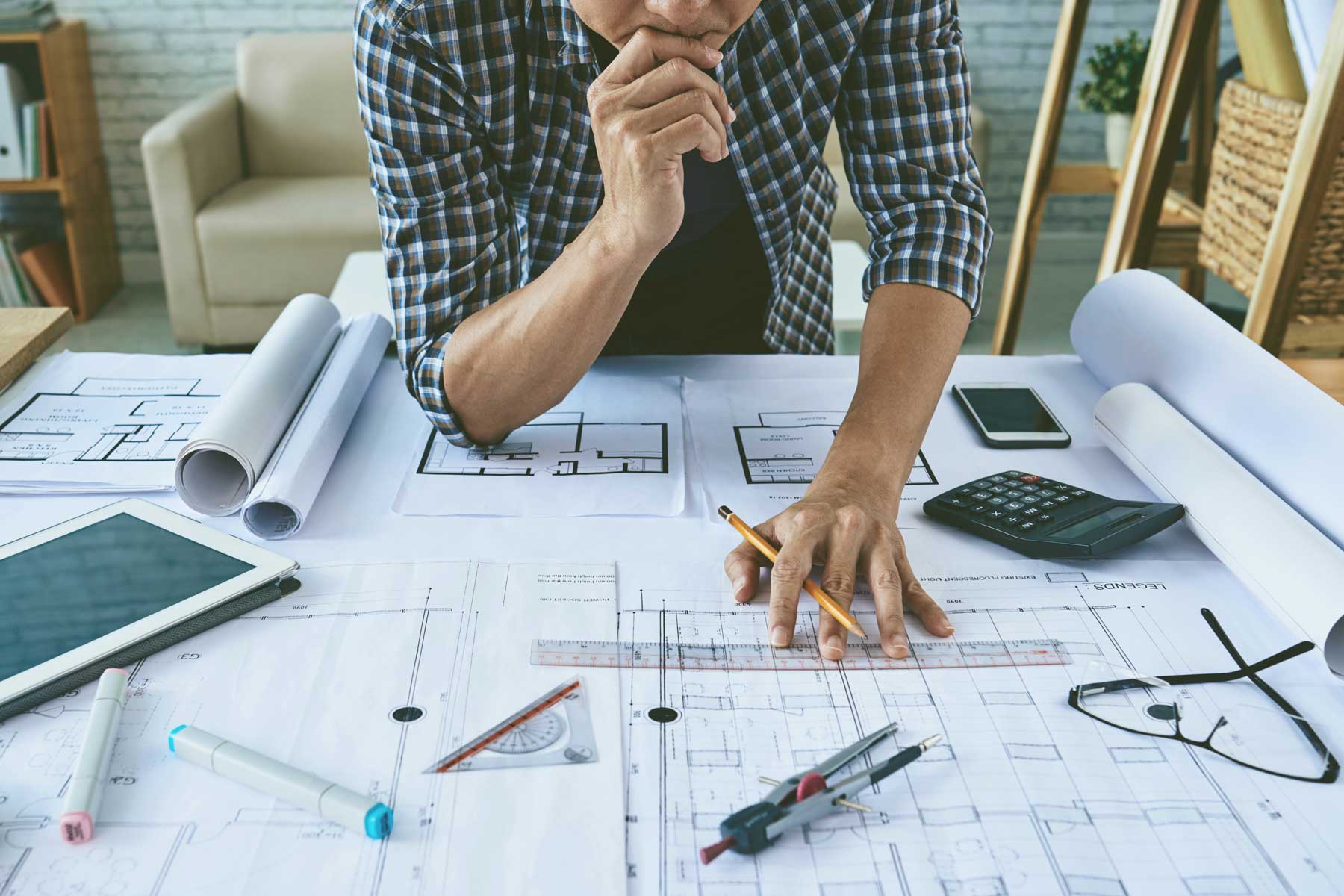Architect Guide to Sustainable Building Materials
Architect Guide to Sustainable Building Materials
Blog Article
Discover the Necessary Skills and Qualities Every Architect Need To Have
As an architect, you know that success in your area surpasses simply technical abilities. It has to do with blending creative thinking with functionality, fostering partnership, and taking care of tasks efficiently. Each top quality plays a critical role in your capacity to make areas that motivate and operate well. What are the particular abilities that can really establish you apart? Let's discover the vital features every Architect should cultivate to grow in this ever-evolving career.
Imagination and Innovation
Imagination and development are at the heart of design, driving the layout of rooms that influence and work effortlessly. As an architect, you'll need to believe outside package, pressing borders to create distinct solutions for your customers. You'll continuously explore brand-new products, methods, and technologies to boost your designs. Accepting development implies staying ahead of fads while being versatile to alter.
You'll additionally attract motivation from different resources-- nature, art, and even everyday life can spark fresh ideas. This capacity to blend imagination with usefulness allows you to attend to intricate troubles, ensuring your designs fulfill both aesthetic and functional needs.
Solid Communication Skills
While creating exceptional rooms requires imagination, strong interaction skills are simply as crucial for engineers. You need to share your concepts clearly to clients, specialists, and team participants. Paying attention is simply as vital; recognizing your customer's vision helps you create layouts that genuinely satisfy their demands.
You'll usually have to discuss complicated concepts in a means that's simple to comprehend, whether you're presenting a proposition or reviewing materials. Efficient communication cultivates partnership, making certain everyone is on the same web page throughout the project.
Building connections is essential, as well. When you establish trust fund and rapport, customers are more probable to share their concerns and comments, resulting in much better end results.
Lastly, don't underestimate the power of body language and aesthetic help. They can improve your message and make your presentations a lot more interesting. Solid communication skills not just elevate your styles however additionally enhance your professional relationships in the building world.
Technical Efficiency in Style Software
As you browse the ever-evolving globe of style, understanding design software application comes to be essential for equating your imaginative concepts right into tangible plans. Acquainting yourself with programs like AutoCAD, Revit, and SketchUp will not only boost your style capacities yet also improve your operations. These devices allow you to produce thorough illustrations, 3D versions, and even simulations that can aid you visualize and offer your principles extra efficiently.
Frequently upgrading your skills and discovering new features can set you apart from your peers, ensuring your styles are specific and cutting-edge. Eventually, technical effectiveness in design software program is a keystone of successful design, aiding you bring your visions to life.
Understanding of Engineering Concepts

Recognizing design principles additionally allows you to anticipate possible obstacles early in the style process. When you're aware of how various products behave under different problems, you can make enlightened selections that enhance your styles. Your styles need to not only be aesthetically pleasing however lasting and likewise practical.
Additionally, a solid grasp of design concepts enables you to introduce within restrictions. You can press innovative limits while still adhering to safety criteria. Inevitably, this understanding enriches your building practice and sets you apart in a competitive area.
Task Administration Abilities
Efficient job management capabilities are essential for designers, allowing you to supervise all facets of a project from perception to completion. You'll need to coordinate with different stakeholders, consisting of professionals, clients, and designers, ensuring everyone's on the same page. Setting clear goals, timelines, and budgets is essential; it helps you keep the job on track and within range.
As an architect, you must likewise be skilled in jeopardy administration, identifying prospective problems before they escalate. Strong communication skills are essential, enabling you to verbalize your vision and motivate your group. You'll profit from being organized and detail-oriented, as this assists improve procedures and stay clear of costly delays.
In addition, flexibility is essential; projects commonly progress, and being adaptable permits you to react successfully to changes. Ultimately, your project monitoring abilities can significantly impact the success of your architectural endeavors, ensuring you supply quality outcomes in a timely manner and within spending plan.
Interest to Detail
While taking care of tasks is important, your interest to detail can make a considerable difference in the top quality of your job. Every line you draw, every material you select, and every small spec you note contributes to the overall success of a job. You require to be meticulous, making certain that your styles not just satisfy aesthetic criteria however also abide site here by constructing regulations and codes.
Missing also a small detail can lead to pricey revisions or security concerns down the line. By cultivating an eager eye for information, you boost your ability to identify possible issues before they escalate. This alertness not only saves you time and resources yet likewise constructs your credibility as a trusted Architect. Remember, it's often the smallest information that boost a job from excellent to remarkable. So, accept this skill, and allow it lead your style process, making certain that your vision is executed perfectly.
Versatility and Problem-Solving Skills
As an engineer, you'll typically face unforeseen modifications in design and job demands. Your ability to accept these changes and find innovative remedies is necessary for success. Staying versatile in your technique not just improves your analytical skills yet likewise keeps your projects on course.
Accepting Adjustment in Design
Accepting modification in layout is necessary for engineers, especially when guiding evolving customer demands and emerging modern technologies. You need to grow flexibility, as tasks typically move instructions based on brand-new understandings or restrictions. Being open to change enables you to explore innovative techniques and produce remedies that reverberate with your customers.
When confronted with obstacles, your problem-solving abilities come into play. You'll typically need to reconsider concepts and adjust intend on the fly, ensuring that the final outcome aligns with the customer's vision while meeting safety and security and regulative requirements. By being versatile and clever, you not only improve your designs but likewise construct count on with your clients, confirming that you can navigate the intricacies of contemporary design efficiently.
Ingenious Solutions to Obstacles

Adaptability in Project Monitoring
While maneuvering the intricacies of job administration, click versatility comes to be an essential possession for designers. You'll often deal with unanticipated challenges, from layout modifications to spending plan restraints, requiring fast reasoning and versatility. Welcoming change allows you to pivot your techniques and locate cutting-edge remedies, guaranteeing job success.
Solid analytical skills are important; they allow you to examine situations, evaluate options, and execute reliable remedies on the fly. When dealing with varied groups, being open to responses and alternative concepts promotes collaboration and triggers creativity.
Often Asked Questions
What Educational Background Is Required to End Up Being a Designer?
To become a designer, you'll require at the very least an expert level in architecture, frequently a Bachelor's or Master's. Completing a teaching fellowship and acquiring licensure through tests is necessary for your occupation advancement.
Just How Essential Is Networking in the Design Area?
Networking's necessary in style. It helps you construct connections, discover work opportunities, and gain understandings from experienced professionals. By connecting with others, you enhance your job leads and stay upgraded on market trends and advancements.
What Are the Common Career Paths for Architects?
Common profession paths for architects consist of design duties in firms, task administration, city planning, and specialized locations like lasting style. Architect. You may likewise explore teaching or consulting, depending on your rate of interests and experiences
How Can Engineers Keep Updated With Sector Patterns?
To remain updated with market why not try this out trends, you must consistently attend conferences, join expert associations, sign up for pertinent publications, and engage with online forums. Connecting with peers also assists you obtain understandings right into emerging growths in style.
What Role Does Sustainability Play in Modern Design?
Sustainability forms modern design by stressing power effectiveness, resource preservation, and eco-friendly materials. You'll create rooms that decrease environmental impact, enhance passenger well-being, and respond to climate difficulties, making your layouts extra impactful and pertinent.
While creating amazing rooms calls for creative thinking, solid interaction abilities are just as crucial for architects. Strong communication skills not just raise your designs yet additionally reinforce your expert relationships in the building world.
Efficiency in style software lays the groundwork for a much deeper understanding of design principles, which is essential for engineers.As an architect, you'll typically face unforeseen changes in design and task demands.Embracing change in design is vital for engineers, specifically when steering evolving client needs and emerging modern technologies.
Report this page